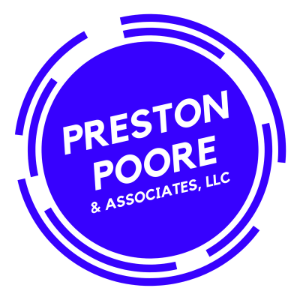Everything Depends on Integrity
“The integrity of the upright guides them, but the unfaithful are destroyed by their duplicity.” —Proverbs 11:3 NIV
Integrity is the foundation of all sound decisions. Your credibility, trustworthiness, and influence depend on it.
The authors of The Leadership Challenge surveyed over one hundred thousand people on what they looked for and admired most in a leader. Honesty topped the list every time. The authors observed, “It’s clear that if people anywhere are willing to follow someone—whether it’s into battle or the boardroom, in the front office or on the production floor—they first want to be sure that the individual is worthy of their trust. . . . No matter what the setting, people want to be fully confident in their leaders, and to be fully confident, they have to believe that their leaders are individuals of authentic character and solid integrity” (emphasis added).[1]
Honest people speak the truth. They live in reality and prefer facts over fiction. Honesty is often used interchangeably with the words authenticity and integrity. Honesty is also the basis of trust. If you trust what someone does, you’ll consider the person dependable, reliable, and consistent. You’ll know what to expect and can count on them. And, honest people admit when they’ve made a mistake or were wrong.
On the other hand, people don’t want dishonest or deceitful leaders—ones who cheat, lie, or are underhanded or tricky. You never know where you stand with them or what may happen. Honesty is the best policy! Honesty will help you navigate through every circumstance, be trustworthy, and avoid compromising your integrity.
Honesty also means being honest to yourself—a great definition of integrity. With integrity, you can accomplish much. People are always watching leaders to see if they are who they say they are. A leader’s actions speak louder than their words. People need to know you are who you say you are, and you’ll do what you say you’ll do. In other words, do your audio and video match?
Consider the last time you were faced with an ethical decision at your job that you knew you could “get away with.” Did you turn a blind eye to unmistakable wrongdoing? Did you feign ignorance to avoid responsibility? Did you play out different scenarios in your head to figure out what outcome would place you in the best position? Or did you choose to do the right thing regardless of the outcome, and even regardless of personal consequences?
As a leader, you will face such decisions on a routine basis. Some companies are moral minefields. Some employees, coworkers, or bosses are ethical nightmares. To be a person of integrity, you must learn how to navigate the minefields and the nightmares without losing your sense of trust in yourself, your team, and God. You must make integrous decisions, no matter the cost.
Consider
- Do you lack integrity?
- Do you quickly acknowledge a lousy decision or mistake without being compelled to do so?
- Do you have an unwavering set of values that guide your decision-making or do circumstances dictate your choices?
- Do you make hard decisions despite the personal cost?
- Do you do what you say you’ll do?
- How will you improve your integrity?
Want to learn more? Visit http://www.prestonpoore.com
Cheers,
Pres
[1] James M. Kouzes and Barry Z. Posner, The Leadership Challenge (Hoboken, NJ: John Wiley & Sons, Inc, 2017), 76–78.

Preston Poore
I help leaders lead—without the buzzwords or boring theories. After years in the Fortune 500 world, I’ve seen it all—bad bosses, great teams, and more leadership fails than I can count. Now, I share real stories, practical tips, and the occasional hard-earned lesson to help you lead with confidence. Let’s figure this out together.
Discover Your Life Purpose
Do you wake up each day dreading the idea of spending another day at work? If you’ve failed to discover and build your life around your life purpose, you might feel dissatisfied with your life. Flip the script! Get this special eBook, discover your purpose, and begin living a more fulfilling life today!
